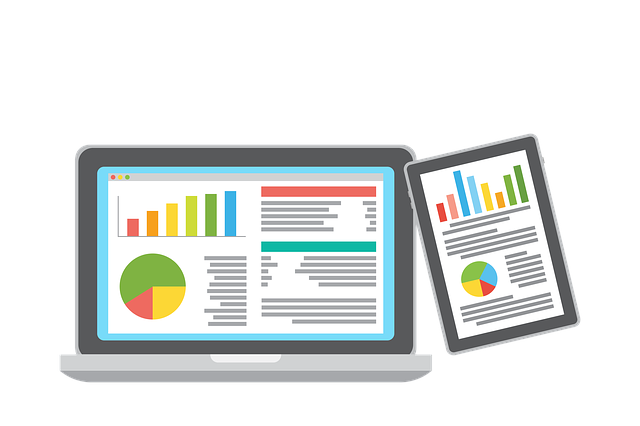Are Trading Bots Legal? A Comprehensive Analysis
Author: Jameson Richman Expert
Published On: 2024-10-22
Prepared by Jameson Richman and our team of experts with over a decade of experience in cryptocurrency and digital asset analysis. Learn more about us.
The world of finance is witnessing a rapid evolution with the advent of technology, particularly artificial intelligence. Trading bots, which utilize algorithms and AI to execute trades on behalf of users, are at the forefront of this transformation. With their rising popularity, the question of their legality has come to the forefront. In this article, we will explore various dimensions of trading bots, including their legal status, operational mechanisms, and the implications of their use in trading.

Understanding Trading Bots
Trading bots are software programs designed to automate trading tasks by analyzing market data and making trading decisions based on predefined criteria. These bots operate 24/7, removing emotional bias and enabling traders to execute strategies with precision and speed.
How Do Trading Bots Work?
At their core, trading bots employ algorithms that analyze market trends, price movements, and other relevant data. They can execute trades based on various strategies, ranging from simple rule-based systems to complex machine learning models. For instance, a bot might use data from multiple sources, such as news articles, social media sentiment, and historical price charts, to make informed decisions about when to buy or sell assets.
Advantages of Using Trading Bots
- 24/7 Trading: Bots can operate around the clock, capitalizing on market opportunities at any time.
- Emotionless Trading: Automated systems remove emotional decision-making from the trading equation.
- Quick Execution: Bots can analyze and execute trades much faster than human traders.
Risks and Disadvantages
- Market Volatility: Bots can misinterpret sudden market changes, leading to significant losses.
- Over-Optimization: Relying too heavily on historical data can result in poorly performing strategies when market conditions change.
- Legal and Regulatory Risk: The legal status of trading bots can vary significantly between jurisdictions.
The Legal Landscape of Trading Bots
As the use of trading bots becomes more widespread, understanding their legal status is crucial for users. The legality of trading bots can vary based on factors such as location, type of trading, and the regulatory environment in place.
Regulatory Frameworks Across Different Regions
United States
In the United States, trading bots are generally legal, but they must comply with existing regulations set by financial authorities, including the Securities and Exchange Commission (SEC) and the Commodity Futures Trading Commission (CFTC). These regulations require platforms to ensure transparency, prevent fraud, and protect investors. If a trading bot operates in a way that constitutes financial advising or asset management, it may require registration as an investment advisor.
European Union
In the EU, the legal framework surrounding trading bots may differ across member states. However, the Markets in Financial Instruments Directive (MiFID II) aims to create a safer financial environment. Under this directive, firms offering trading bots must adhere to strict standards, including transparency and investor protection. Additionally, algorithms used by trading bots may be scrutinized to ensure they do not manipulate markets.
Asia and Other Regions
In Asia, the legality of trading bots varies significantly. Countries like Japan have embraced cryptocurrency trading, allowing the use of bots legally, while in China, strict regulations surrounding cryptocurrency trading curtail the use of such automated systems. It’s crucial for traders in different regions to be aware of their local regulations and seek legal counsel if necessary.
Are Trading Bots Considered Financial Advisors?
According to many jurisdictions, if a trading bot provides advice or recommendations on financial instruments, it may be classified as a financial advisor. This classification may subject the bot's operator to licensing requirements and compliance with fiduciary duties. Users should ensure that the bot they are employing does not violate any laws related to investment advice.
The Future of Trading Bots
As technology continues to develop, the landscape of trading bots is rapidly changing. More sophisticated AI algorithms and machine learning techniques are making these bots more effective than ever. The future seems bright, but it also raises significant legal and ethical questions.
The Rise of Artificial Intelligence Trading Bots in 2024
An emerging trend in trading is the integration of artificial intelligence, where bots learn from past data to make more informed decisions. The article The Rise of Artificial Intelligence Trading Bots in 2024 discusses how these advanced systems are poised to revolutionize the financial markets. As these technologies become more accessible, we can expect a significant increase in their use, raising both opportunities and challenges.
Potential Legal Implications
As the use of AI trading bots increases, regulatory bodies may implement stricter guidelines to ensure investor protection and market integrity. The legal landscape may shift dramatically, necessitating that traders and developers stay informed about these changes.
Bot Planet Crypto: The Future of Automated Trading
The concept of automated trading platforms is gaining traction, and articles like Bot Planet Crypto: The Future of Automated Trading delve into how such platforms provide users with powerful tools to leverage trading algorithms effectively. The sheer volume of data processed by these bots makes them capable of identifying trends that human traders might overlook.
Changing the Trading Paradigm
Automated trading platforms like Bot Planet Crypto not only simplify the trading process but also democratize access to advanced trading strategies that were once the domain of institutional traders. However, traders should still perform due diligence and understand the risks associated with using these bots, especially in volatile markets.
The Rise of AI Bots in Trading: Revolutionizing Financial Markets
The integration of artificial intelligence into trading is a game-changer. The article The Rise of AI Bots in Trading: Revolutionizing Financial Markets discusses how AI technologies are rethinking traditional trading strategies. By utilizing complex data analytics and predictive modeling, AI bots can foresee trends and respond faster than human traders.
Regulatory Adjustments Needed for AI
These advancements will likely prompt a reevaluation of existing financial regulations to accommodate the unique challenges posed by AI-driven trading. It's crucial to establish clear guidelines that govern the use of AI in trading to protect investors while fostering innovation.

Trading Bots and Cryptocurrency
Where Can I Leverage Trade Crypto in the US?
For those looking to use trading bots for cryptocurrency, understanding where and how to trade is critical. The article Where Can I Leverage Trade Crypto in the US? provides valuable insights into the most reputable platforms for cryptocurrency trading, recommending exchanges that accommodate the use of bots and ensure regulatory compliance.
Choosing the Right Platform
When selecting a trading platform for automated trading, one must consider factors such as security, user interface, and the availability of APIs that allow for bot integration. Moreover, regulatory compliance is crucial; platforms should be transparent about their legal standings and any applicable licensing requirements.
Buy and Sell Signals in Cryptocurrency: A Deep Dive for 2024
As traders look for an edge in the highly competitive cryptocurrency market, automated systems are increasingly relying on buy and sell signals to make informed decisions. The article Buy and Sell Signals in Cryptocurrency: A Deep Dive for 2024 explores how traders can utilize these signals to maximize profitability.
The Importance of Signal Reliability
The accuracy of buy and sell signals is paramount for successful trading. If a trading bot utilizes unreliable signals, it can lead to significant financial losses. Thus, traders must perform thorough research and choose systems that provide accurate and timely information.
Conclusion
The legality of trading bots remains a complex subject, varying from region to region and dependent on the type of trading activity involved. While they offer numerous advantages such as faster execution and the elimination of emotional bias, users must remain vigilant and informed about relevant regulations.
Furthermore, as we march further into the realm of AI-driven trading, it will be essential for regulatory bodies to adapt and establish clear guidelines to protect investors while enabling innovation. In this rapidly evolving landscape, informed traders are best positioned to leverage technology while navigating the complexities of legality and compliance.
In my opinion, embracing the potential of trading bots can lead to enhanced trading strategies and opportunities. However, being aware of the legal ramifications and choosing reliable platforms will be key to a successful trading experience.